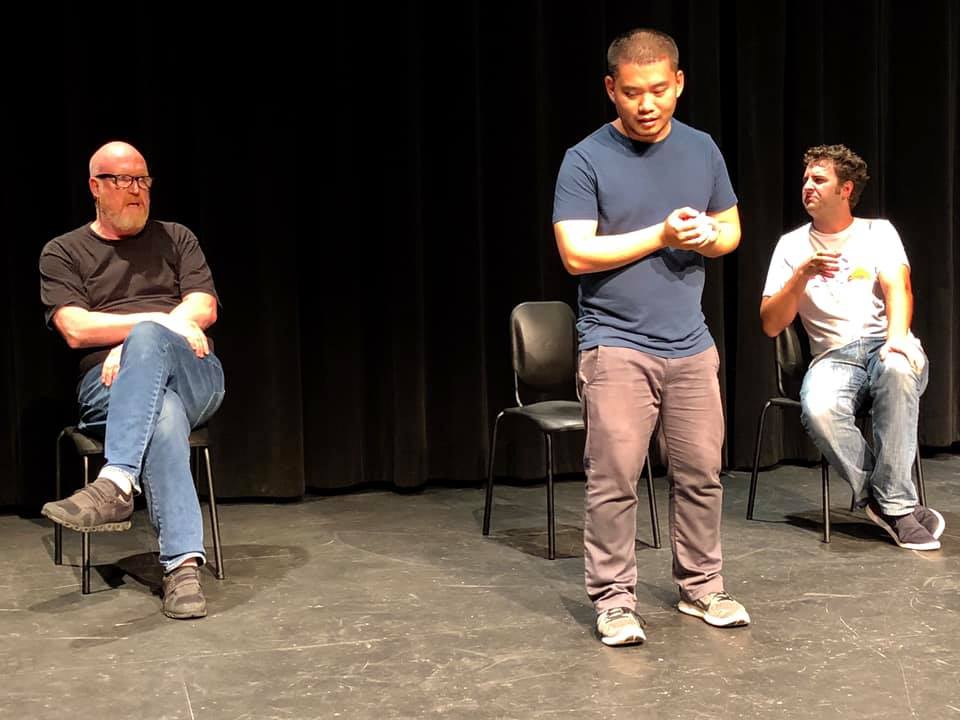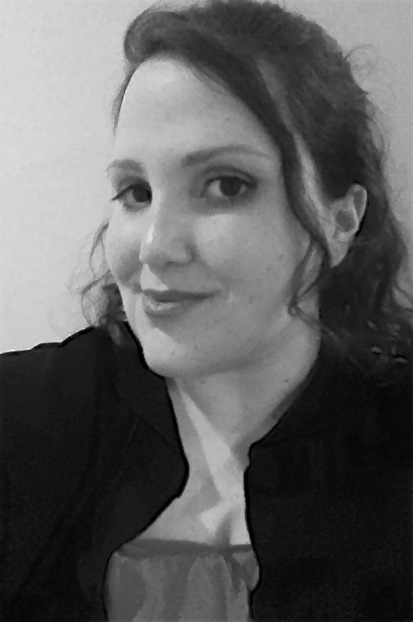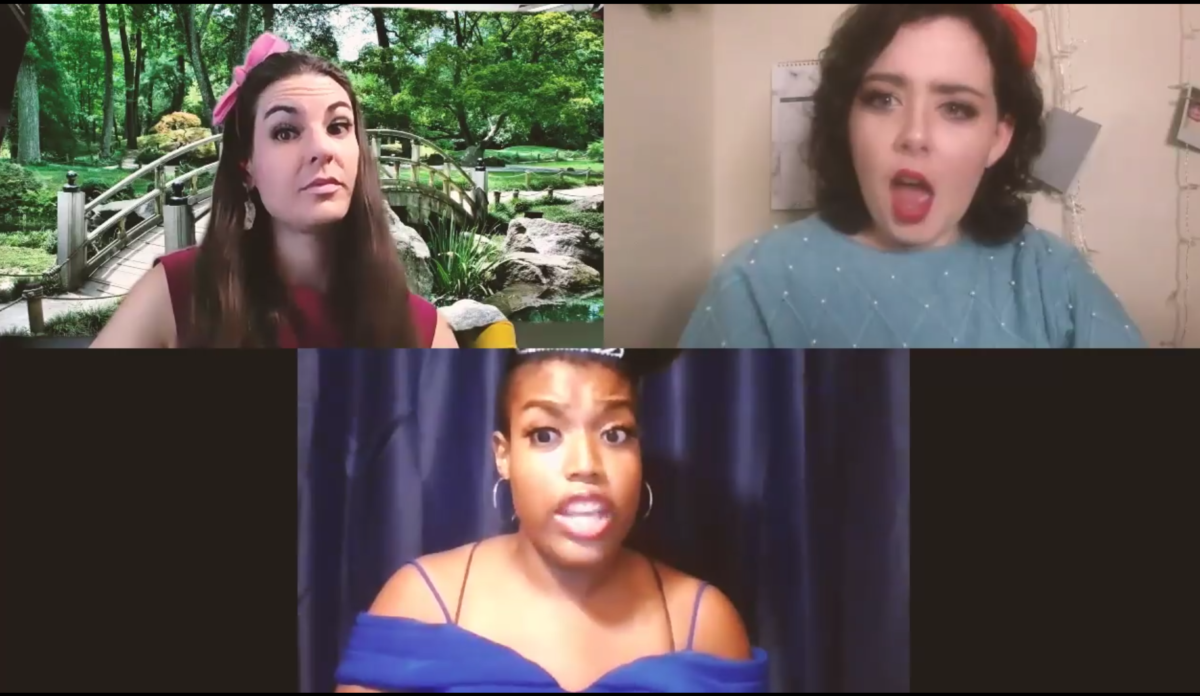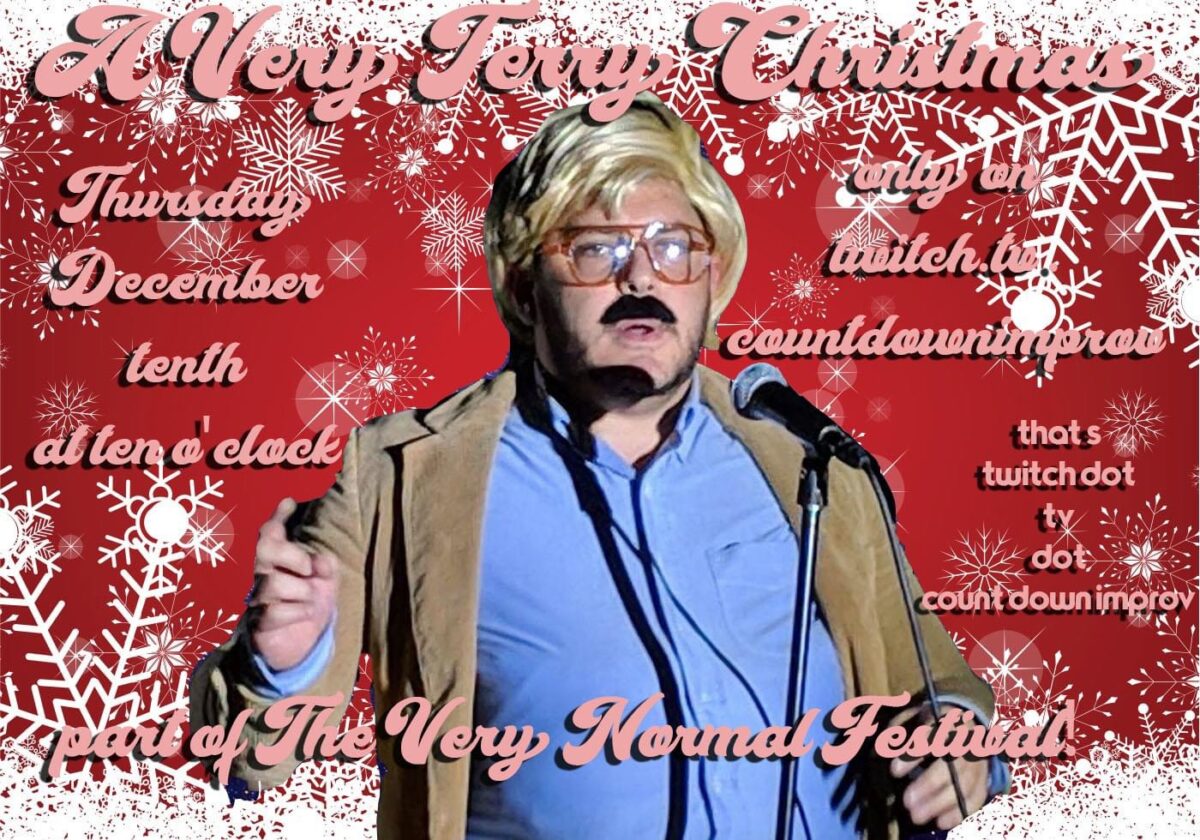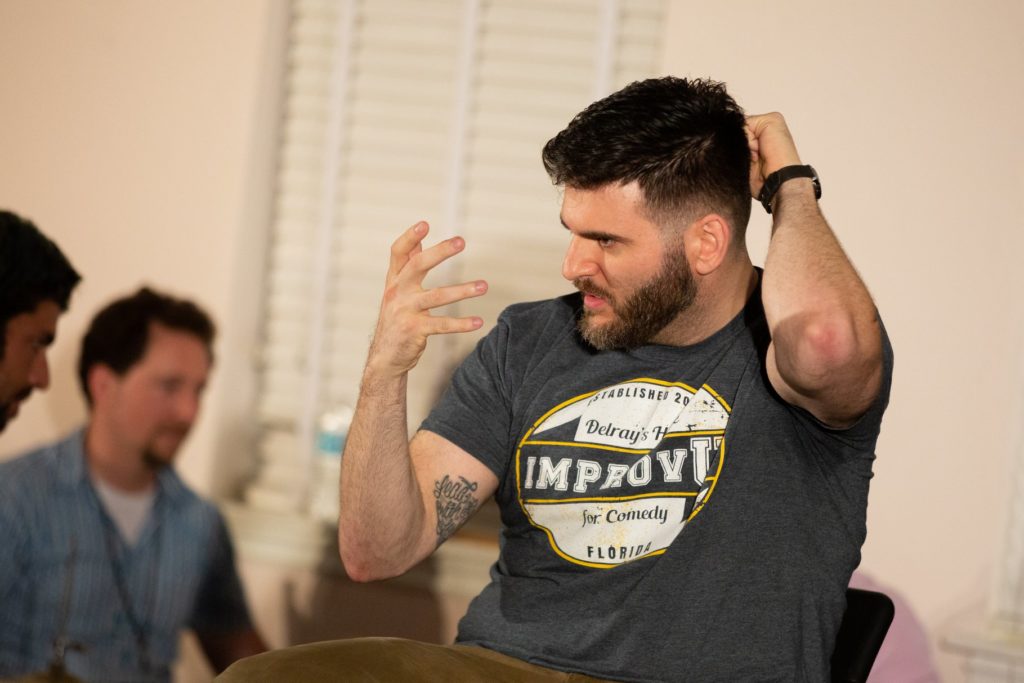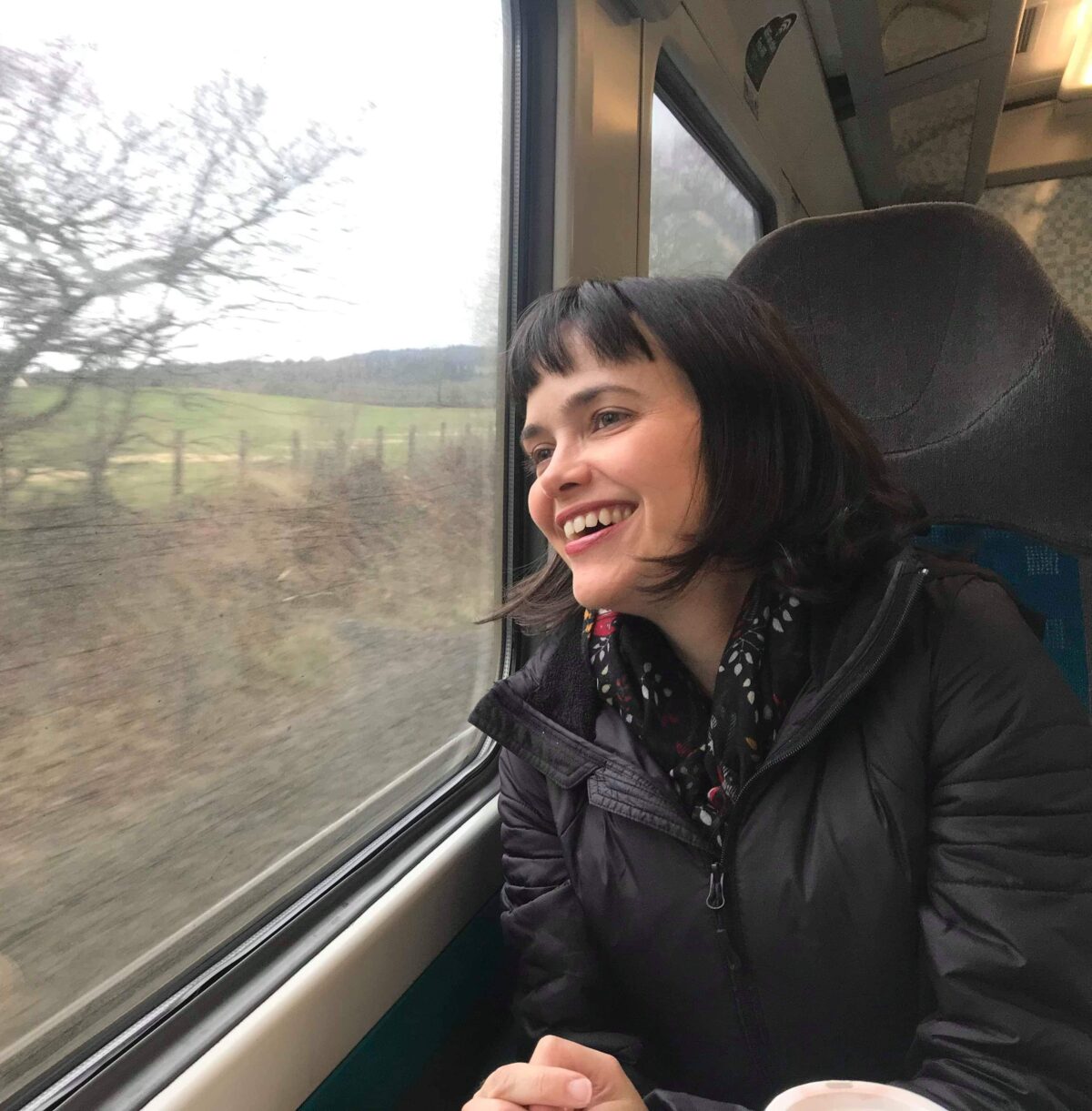Bill Binder and Merrie Greenfield improvise together as the duo I’m With Her. Based out of the Torch Theatre in Phoenix, Binder and Greenfield will perform in the 10:10 pm EST show block on Wednesday, December 9 at the 2020 Very Normal Festival. In this spotlight interview, Binder and Greenfield discuss the genesis of their duo, how they know when they’ve had a “good” show, and why it seems like there are so many Chicago transplants in the Phoenix area.
We’re so lucky to have both of you with us this year! Tell us about I’m With Her. What can audiences expect from your show this year?
We both feel so lucky and excited to be involved, thank you! Merrie here, and I’m haunted by writing show descriptions, but I’ll try. I think audiences can expect seasoning of vulnerable and/or emotional prodding, in a bouillabaisse of grounded/absurd play and references to antiquated pop culture nobody remembers/wants to remember except us. Bill has provided a couch for me to quarantine away from my older, immunocompromised parents this year, for which I’m immensely grateful and in constant awe of. I’m sure the extra lockdown time in the same space has been marinating a couple of heightened shows, hopefully even sillier than we usually get. Also, I just learned I’ve been using “bouillabaisse” wrong for literally years.
Can you please tell us your duo origin story? We seem to recall that it involves the 2016 presidential election, is that right?
Bill Binder: I actually had a two-person Cagematch-type show at another theater across town and my scene partner had to drop out last second, so I asked Merrie to sit in. It was right around the 2016 election.
Merrie Greenfield: Ha, Bill always misremembers this as pre-election, but I have an emotional atlas I can consult. It was actually 12 or so hours before Trump’s inauguration ceremony in 2017. The other theater is run by really kind folx, located in a much more MAGA-centric demographic than the Torch. The last time I’d been there, I was performing on a show Matt Storrs and Hattie Hayes put together… on 2016’s presidential election night. Coming back was weird.
I’m from New York, so I already knew Trump wasn’t “putting on an act,” as I heard theorized. I’d volunteered to get HRC elected. I had to be a human Snopes page more than during any other progressive volunteering I’ve done. The loss wasn’t a shock, I’d already had some wonderful private discussions with a few loved BIPOC loved ones and it was impossible to miss the tenor in my feed. But I was still upset I hadn’t done more and I was on a low constant boil of rage. I wanted to poke the bear. Bill suggested calling ourselves “I’m With Her,” knowing all this and noting how anxious I was to replace an improvisor with years of experience, still intimidated by Bill’s talent. Since he’s well-known in the improv world and I’m not so much, I thought “I’m with Her” was really supportive. I remember being nervous about it, though, because dogs own guns out here. It would be a bait and switch, as we wouldn’t reference politics in the set. Then I was mad about being afraid. He let me decide, but encouraged me it was the right name for the moment.
BB: Especially since it was kind of an ad hoc show.
MG: One night only. In a suburb.
BB: We wound up winning by audience vote to return, and we enjoyed the give and take of our play and decided to keep it going.
MG: Bill and I already clicked as colleagues and friends, and he made good on a promise to have my back. It was satisfying the audience was so warm towards us by the end of it.
You’re two of the most thoughtful improvisers we know, both in terms of your choices on stage and the ways in which you approach the craft of improvisation. So we wanted to ask: What to you constitutes a “good” I’m With Her show? How do you define success within your duo and your format?
BB: Why, thank you.
MG: Wow, that’s so kind to say, especially coming from you two. I adored talking to some of our students after your From Justin to Kelly shows, and watching them watch you, sitting forward in their seats. A few literally said they had no idea that’s what improv could be. I am very inspired by you two in multiple ways! I have to save this for future Imposter Syndrome moments.
BB: Our best shows probably come when we find a good relationship (or two) that just feels easy to play forever. A good show has us discover things about each other. A great show has us discovering things about ourselves through each other.
MG: Bill and I are so different offstage, but I trust him implicitly. I have a lot of fun when Bill plays a character totally in control, and my character pours Strawberry Quik all over his blueprints. He does the same to my reserved characters. One of us will tag in with a touch of manic pixie dream girl for the other person. I love the moments when Bill plays someone who isn’t All Business. Offstage Bill’s silliness and generosity of spirit is fun to see peeking through. If anyone else has anywhere near as much fun onstage as I do, if it feels like the times when we’re making the other person wheeze with laughter offstage? Jackpot.
The two of you also — and perhaps primarily — perform with several larger ensembles in the Phoenix area. Does duoprov scratch a particular itch for you both that large-format improv doesn’t? Are there things you find uniquely rewarding about duo performance?
BB: Both offer awesome gifts. One thing that’s great about two-person shows is that you can settle in on a good run of discovery and be as patient as you want to let it flower.
MG: I love the big ensembles I’m lucky enough to work with. But two- and three-person teams draw me like a magnet. I grew up on my parents’ stories about the Nichols and May show they saw in a little NY club, about how in tune they were. My favorite shows to watch are either so committed to having fun the train is in danger of jumping the rails, or else high dosage vulnerability. Managing both is always the goal. We were forced to strip away as much pretense as possible in my scripted theater training and I was intimidated out of even trying improv after seeing positively magical shows like that in Chicago. I love when I wonder if an improvisor is using their own life onstage, because it feels voyeuristic and true. I love feeling like I found someone’s diary, or like it’s part of a well-made documentary. That’s a much easier goal for me with one or two other humans.
The two of us were in Phoenix last year for Ghostfest, and for some reason we ended up spending a lot of time at the bar of the Lou Malnati’s in the strip mall down the road from the Torch. Our question is this: Why are there so many Chicago people in the Phoenix area? (Justin is himself a Chicago person who has *lots of* relatives who have relocated to Phoenix.) Any theories?
BB: You know how when you buy a new car, you suddenly see it everywhere? When you learn a new word it pops up three times in the next week?
MG: Baader-Meinhof phenomenon. Not to be confused with the Dunning-Kruger effect.
BB: That’s Phoenix. If you’re from Cincinnati, you’ll meet 45 people from there in your first week. If you’re from Detroit, you’ll be surprised how many Detroiters pop up right away. This city exploded since the invention of air conditioning. Our population is 45 times what it was in the 50’s. So most people here identify from where they used to live. Also Chicago is very cold, and Phoenix is not.
MG: I disagree, ha! I meet other New York transplants out here, but nothing like Chicago expats. They are legion. NY tends to slide mostly down to Florida when it gets sick of the grind, in my experience, and I think a lot of Chicago started coming out to Arizona because of the Cubs spring training and somewhat nearish White Sox training. (I was so happy to leave behind commutes through the mobs of suburban frat guy Cubs fans in Chicago, but now I regularly have to commute through them again after their facility moved in my path. Go Sox.) When we moved from Long Island, there just weren’t a lot of Jewish people out here. It’s better now, but I still run into “exotic” reactions more than I should, you know? [My parents LOVED watching The Frisco Kid with Gene Wilder a lot when I was a kid, maybe as catharsis.] I think the whole cowboy pew pew thing deters a lot of potential transplants, except Chicagoans, who harbor nostalgia for the ’20s gangster pew pew thing. I remember I always got shit for moving from Phoenix to Chicago, but I’d just say “I’d rather be cold than embarrassed of my state, especially politically.” I love how mad and desperate some people here are getting while confronting that’s changed. Poke. The. Bear.
Finally — we are contractually obligated to ask this question — on an ascending scale from 1 to 10, how normal is your show and why?
Negative three. Because that’s what this festival demands of us. We’re going to be so damned normal, you’ll start feeling self-conscious about any weirdness you harbor. Also, this answer is not abnormal. Go to sleep.

